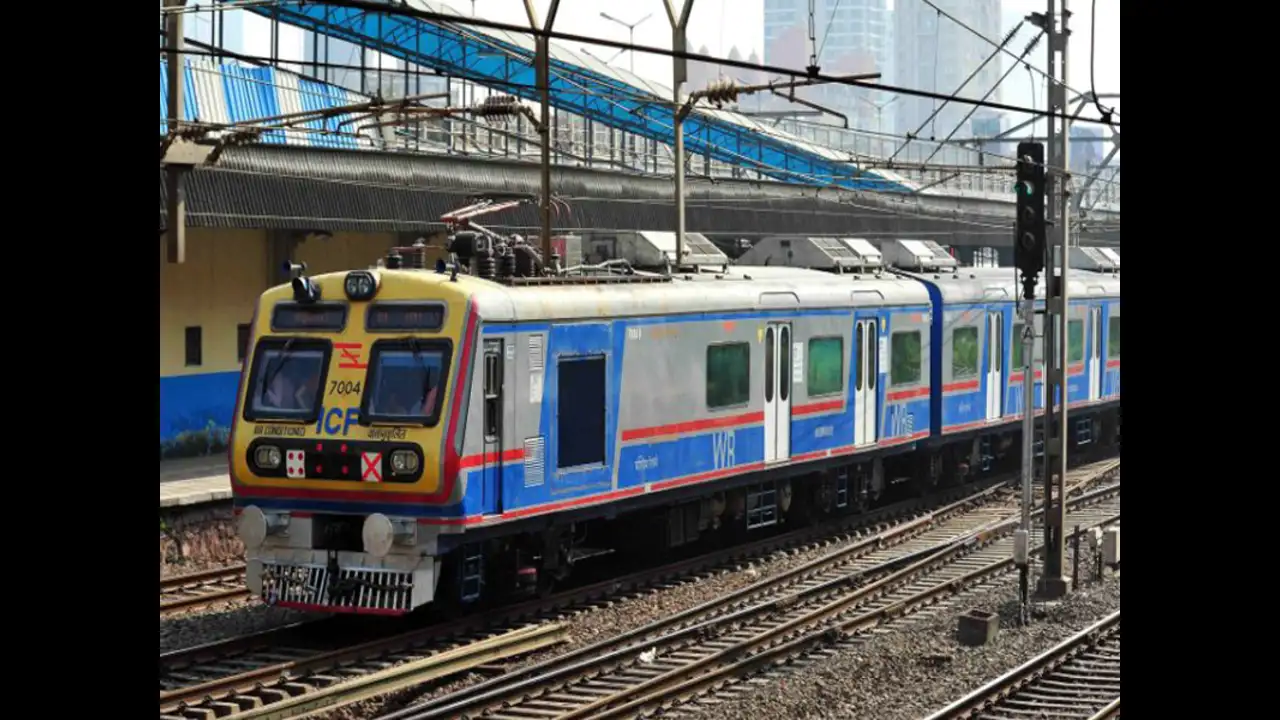Central Railway on Tuesday cancelled 12 scheduled air-conditioned (AC) local train services on the Main Line and substituted them with non-AC trains—without offering any fare refund or alternate compensation. The decision disrupted the daily commute for thousands of passengers, many of whom hold AC season passes that cost several times more than standard or first-class fares.
The replacement of premium AC services with regular non-AC rakes comes at a time when demand for climate-controlled coaches is at an all-time high. Official data indicates that average weekday ridership on Central Railway’s AC locals has touched 78,000 in 2024, with the total annual footfall rising from 2.09 crore in 2023 to 2.84 crore this year. Despite this clear upward trend in passenger preference, the lack of service continuity has created frustration among users, especially in peak travel windows. While a brief notification was posted on social media by the Divisional Railway Manager’s office informing about the replacement, it did little to placate commuters, who called the communication vague and non-transparent. For many daily passengers, the last-minute change was not only inconvenient but also financially unjustifiable.
A senior railway official attributed the cancellation to operational issues, stating that “maintenance schedules and rake availability” had necessitated the substitution. However, no clear explanation was offered on why alternative AC coaches could not be deployed, or why fare adjustments had not been made in real time for those affected. This recurring issue of abrupt cancellation of AC locals has been a growing concern for passengers. Commuters argue that despite paying over ₹2,000 to ₹2,500 per month for AC passes, they are frequently made to travel in general compartments that lack comfort, safety, and basic ventilation—completely defeating the purpose of opting for premium suburban services.
Many passengers are demanding the introduction of an automatic fare adjustment system that would refund the fare difference between an AC and a non-AC journey if an AC service is cancelled or replaced. Several urban mobility experts echo this demand, calling it essential for fair fare enforcement and commuter trust. They highlight that without such a mechanism, Mumbai’s suburban system risks becoming both inefficient and inequitable. A transport policy researcher from a city-based think tank pointed out that consistent service quality is essential to make sustainable public transit attractive to middle-income users. “AC trains were introduced not just for comfort but also to incentivise a modal shift from private vehicles to mass transit. But poor reliability undermines that shift,” the expert noted.
In Mumbai’s humid summer months and increasingly erratic monsoon weather, AC trains are not a luxury but a practical necessity for long-distance suburban commuters. With average journey times of 45 to 90 minutes and severe congestion in regular coaches, the need for predictable and comfortable services is now viewed as fundamental to dignified urban mobility. The issue also reflects a broader accountability gap within railway operations. Passengers say that while their obligations—such as buying tickets or maintaining decorum—are strictly enforced, service providers appear to face no penalties when promised facilities are withdrawn. This asymmetry, they argue, erodes faith in public institutions and discourages regular ticketing among younger or low-income commuters.
In the absence of a formal refund or grievance mechanism, passengers are often left with no choice but to voice their dissatisfaction online or via press channels. However, such ad-hoc redress rarely translates into structural policy change. The unavailability of an effective feedback loop continues to distance transit agencies from the very users they are meant to serve. Further compounding the issue is the lack of clarity on maintenance and fleet management practices. With only a limited number of AC rakes operational, even a minor technical failure can lead to ripple effects across the schedule. Officials have acknowledged that fleet modernisation and spare part procurement delays affect daily operations, but passengers remain unconvinced. They are demanding transparency in service planning and advance notice in case of disruptions.
Several commuters, including working professionals and senior citizens, expressed concern that the inconsistency in AC services is making them reconsider their reliance on public transport. Some even said they had begun alternating between private vehicles and app-based cabs on days when railway disruptions are anticipated—ironically adding to city congestion and pollution, both of which public transport aims to reduce. While Indian Railways has committed to expanding its fleet of AC locals and modernising signalling infrastructure, the day-to-day experiences of passengers suggest an urgent need for real-time responsiveness and passenger-centric service design. Experts argue that without integrating tech-enabled solutions such as dynamic fare correction, mobile alerts, and digital grievance redressal, the suburban network may struggle to retain public trust despite ongoing infrastructure upgrades.
A retired railway planner noted that fare fairness is a basic metric of commuter rights in any metropolitan system. “You cannot sell a higher-class ticket and then deliver a lower-class experience without accountability. It violates not just economics, but the social contract of public transport,” he said. Until Central Railway introduces operational transparency and mechanisms for automatic refunds or service credits, daily commuters—particularly those investing in AC season passes—may continue to feel underserved. Without meaningful reforms, the promise of modernising Mumbai’s suburban rail with premium and climate-resilient services risks remaining unfulfilled.
Also Read : Mumbai Metro Projects Worth Rs 12000 Crore Approved


